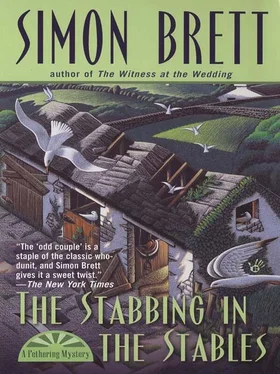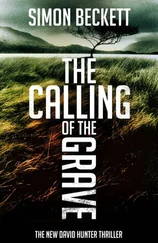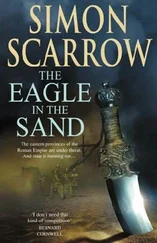Simon Brett - The Stabbing in the Stables
Здесь есть возможность читать онлайн «Simon Brett - The Stabbing in the Stables» весь текст электронной книги совершенно бесплатно (целиком полную версию без сокращений). В некоторых случаях можно слушать аудио, скачать через торрент в формате fb2 и присутствует краткое содержание. Жанр: Классический детектив, на английском языке. Описание произведения, (предисловие) а так же отзывы посетителей доступны на портале библиотеки ЛибКат.
- Название:The Stabbing in the Stables
- Автор:
- Жанр:
- Год:неизвестен
- ISBN:нет данных
- Рейтинг книги:4 / 5. Голосов: 1
-
Избранное:Добавить в избранное
- Отзывы:
-
Ваша оценка:
- 80
- 1
- 2
- 3
- 4
- 5
The Stabbing in the Stables: краткое содержание, описание и аннотация
Предлагаем к чтению аннотацию, описание, краткое содержание или предисловие (зависит от того, что написал сам автор книги «The Stabbing in the Stables»). Если вы не нашли необходимую информацию о книге — напишите в комментариях, мы постараемся отыскать её.
The Stabbing in the Stables — читать онлайн бесплатно полную книгу (весь текст) целиком
Ниже представлен текст книги, разбитый по страницам. Система сохранения места последней прочитанной страницы, позволяет с удобством читать онлайн бесплатно книгу «The Stabbing in the Stables», без необходимости каждый раз заново искать на чём Вы остановились. Поставьте закладку, и сможете в любой момент перейти на страницу, на которой закончили чтение.
Интервал:
Закладка:
Simon Brett
The Stabbing in the Stables
1
“A horse?” Carole Seddon echoed with distaste. “You’re planning to heal a horse?”
“Well, to have a go,” said Jude.
“But I don’t see how it can possibly work. Horses don’t have human understanding. A horse won’t know it’s being healed, so how can it be healed?”
Jude chuckled, and her bird’s nest of blond hair rippled before resettling around her plump face. “What you’re saying, Carole, is that because a horse doesn’t know it’s being healed, it’s not going to fall for the idea that it is being healed, as a human being might. You’re saying horses aren’t that gullible.”
“Well…”
“Yes, you are.”
“Maybe.”
“I know you don’t believe in healing…”
Carole tried to find some form of denial, but all she could come up with was, “Let’s say I don’t understand it.”
“I don’t understand it either. I just know that it sometimes works.”
“Yes, but not with animals.”
“There are many authenticated reports of animals’ ailments having been cured by healing.”
“Huh.” That was Carole Seddon’s customary response to the world of alternative therapy-and to many other things that challenged the security of her sensible life.
They were sitting in a part of that security, the kitchen of her house High Tor in the West Sussex seaside village of Fethering. The tidiness of the room, the gleaming surfaces, the neatly aligned pots and pans, the rack of spice jars whose labels had been dragooned into facing the front, all conspired to cancel out the cosiness that the Aga should have imparted. In front of the stove, Carole’s Labrador, Gulliver, satisfied by his late afternoon walk on Fethering Beach, snuffled in a contented dream of saving the world from killer seaweed.
“So whose horse is it?”
“Woman called Sonia Dalrymple.”
“Do I know her?”
“No. She’s a client.” Jude always used that word to describe the people who took advantage of her occasional healing and balancing services. “Patient” never sounded right to her.
“Oh.” Carole managed to fill the monosyllable with exactly the same ration of scepticism that she had put into the “Huh.” Her attitude to Jude’s “clients” was that they were slightly flaky people with insufficient self-control-and probably more money than sense. Carole’s view was that when you were genuinely ill, you went to your GP. And when you weren’t genuinely ill, you put up and shut up.
Carole Seddon suffered from the innate puritanism of a middle-class Southerner in her fifties, a system of values that had been dinned into her by timid parents in the postwar austerity of her upbringing. She was suspicious of the foreign, the unknown and, most of all, anything with the slightest whiff of mysticism. She hated herself for her hidebound worldview, but it was too much part of her personality to yield to major change.
That personality was, she liked to think, reflected in her appearance. Her grey hair was cut sensibly short, and her pale blue eyes were assisted by sensible rimless glasses. Bright colours and patterns were eschewed, and the only part of her wardrobe aspiring beyond Marks amp; Spencer was a well-kept, though now ageing, Burberry raincoat.
But over the previous few years chinks had appeared in the carapace of correctness with which Carole Seddon had deliberately surrounded herself. As she grew further away from the trauma of divorce from her husband David, as she became more reconciled to her unwarrantably early retirement from the Home Office, she had not exactly mellowed-indeed, the idea of “mellowing” would have been anathema to her-but she had entertained the possibility that there might exist valid attitudes other than those with which she had been brought up. This process had been partly assisted by a rapprochement with her son Stephen, engineered by Gaby, the girl to whom he was now married.
But the greatest change in Carole Seddon had been effected by the serendipitous arrival of Jude in Woodside Cottage next door. Carole would never have admitted it, because she was not an advocate of any kind of sentimentality, but her friendship with Jude was the most potent agent in the recent thawing of her character’s permafrost.
The attraction between the two women was unlikely. In spite of the fact that Carole wanted to organise every moment of the future to within an inch of its life while Jude was comfortably content to let events come to her, their relationship survived remarkably well. And the detail that from time to time that relationship had incorporated murder investigations was regarded by both women as an inestimable bonus.
“So for what imagined ills does this Sonia come to you?” Carole continued sniffily.
Jude smiled an easy smile. “There is such a thing as client confidentiality.”
“Yes, I suppose there is…” The temptation to add “in your kind of world,” proved irresistible. “And it’s her horse?”
“As I said. He’s called Chieftain.”
“She must be rich.” There were certain triggers within Carole to this knee-jerk reaction, and all of them came from her childhood, when her parents had made sacrifices to put her through private education. Anyone who had a horse must be rich. Equally anyone who had a boat. The same went for anyone who went skiing-and certainly anyone who went water-skiing. The fact that all of these indulgences had now become widely available to the general public did not change Carole’s views. In the ineluctable way of prejudices, they stuck.
“As a matter of fact, Sonia is quite well heeled.”
“I thought so,” said Carole, prejudice vindicated.
“But that’s not important.”
Oh no, of course not. Owns a horse, and can afford to splash out on alternative therapies, but the money’s not important. But Carole kept such reactions to herself.
Jude’s grin suggested she had read the thoughts without their being voiced. She sat at the kitchen table of High Tor, swathed in her customary layers of fabric-more of them now to fend off the February chill. Jude didn’t always wear the same clothes, but they always gave the same impression. She dressed in a profusion of floaty shirts, skirts and scarves, which never seemed to define where one garment ended and the other started. The outline around her plump body was always imprecise, but to everyone it generated a feeling of comfort-and, to men, an undoubted sexual allure. People were always at their ease around Jude, something that could never be said of Carole.
“Anyway, what’s wrong with the horse?”
“Chieftain’s lame. Trouble with his knee.”
“Do horses have knees?”
“Of course they do. Their legs are hinged in the middle, you know.”
“Yes, I know they are, Jude. But ‘knee’ sounds a rather prosaic word for a horse. I thought they were all ‘fetlocks’ and ‘withers’ and…” Carole’s repertoire of equine anatomy ran out.
“I can assure you they have knees, as well as fetlocks and withers.”
“Ah.” She still needed something with which to come back at Jude. “I thought, if horses were ill, they were taken to vets.”
“And if a horse is taken to the vet, and the vet can’t find anything wrong…?”
“Oh, I see. Then they resort to alternative remedies,” and Carole couldn’t stop herself from adding, “just like gullible humans.”
Jude grinned again. In anyone else, such a grin would have been infuriating. With her, somehow it wasn’t. “Except, you’ve already established that horses can’t be gullible.”
“No. Well, maybe not,” Carole conceded. “Anyway, when you came in, some time ago, you asked if I could do you a favour. So far as I can recollect, you haven’t yet said what that favour is.”
Читать дальшеИнтервал:
Закладка:
Похожие книги на «The Stabbing in the Stables»
Представляем Вашему вниманию похожие книги на «The Stabbing in the Stables» списком для выбора. Мы отобрали схожую по названию и смыслу литературу в надежде предоставить читателям больше вариантов отыскать новые, интересные, ещё непрочитанные произведения.
Обсуждение, отзывы о книге «The Stabbing in the Stables» и просто собственные мнения читателей. Оставьте ваши комментарии, напишите, что Вы думаете о произведении, его смысле или главных героях. Укажите что конкретно понравилось, а что нет, и почему Вы так считаете.












